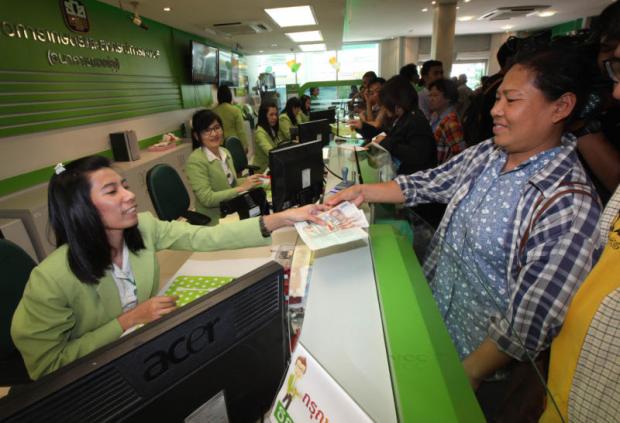
The state-owned Bank for Agriculture and Agricultural Cooperatives (BAAC) has set aside 2 billion baht in low-rate loans for contract farmers in an effort to boost their income.
The bank will charge contract farmers the minimum retail rate (MRR), which stands at 7%, and agricultural cooperatives and community enterprises the minimum lending rate, which is 5%, said Sarayoot Yimyuan, executive vice-president of BAAC.
The BAAC will also provide contract farming borrowers 100% of collateral value, above the typical rate of 70-80%, as the project carries low risk, he said.
Retail farmers are typically charged three percentage points on top of the MRR.
Contract farming involves agricultural products carried out based on agreements between buyers and farm producers. Typically, the farmer will provide agreed-upon quantities of a specific agricultural product.
The cabinet in 2016 approved a draft bill on the promotion and development of contract farming, aimed at ensuring fair contract terms for farmers and protecting them from exploitation.
The state-backed farm bank yesterday signed cooperation agreements with Betagro Agro Industry and Thai Food Swine International to extend their contract farming programme to farmers living in two provinces, Suphan Buri and Maha Sarakham.
Some 200 farmers from each province are expected to participate in the programme, Mr Sarayoot said.
The contract farming programme is in accordance with the government's policy to use a market-driven farming approach to lower risk and create opportunity for farmers to access knowledge related to production and technology from buyers to improve their farming for higher standards.
The collaboration should help widen income streams for farmers, Mr Sarayoot said.
Under the contract, companies will carry out surveys to pinpoint a targeted area, set qualifications for farmers who will join the contract farming scheme; provide them details related to production plans; estimate farm output, break-even period, risks and production worthiness; and train farmers.
Mr Sarayoot said farmers contracted to large agricultural firms in the past have always lost out on income, as these companies specified production quality and selling prices were lowered if products failed to meet requirements.
This latest contract farming system, however, sets fairer conditions, he said.